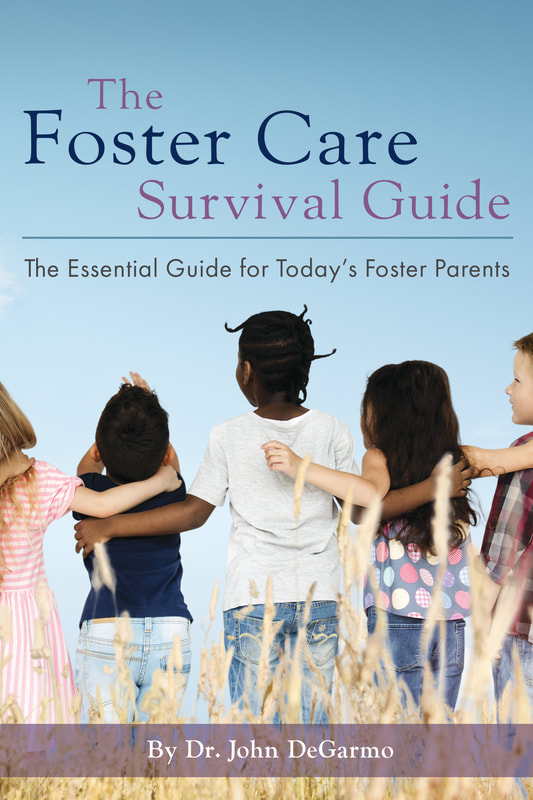
Last month, we looked at three things that every foster parent needs to do. This month, we look at three MORE things that foster parents absolutely must do! If you do not, all that you do will suffer.
Patience is a Virtue
When we lose our control, or lose our patience, with a child, we lose control over the situation itself. When children see us lose control ourselves, it may suggest to them that the response they chose was the right one. It is important to remember that many children in foster care have never been in an environment where issues are addressed in a calm and rational manner, but instead in one of anger and hostility. Your own loss of patience and control reinforces to them that this response is normal, and acceptable. When a child in your home is trying your patience, as the saying goes, try and remain calm. Respond to the child in a calm fashion, and with compassion and patience. Not only will you show the child that you can maintain control, you will also teach the child appropriate ways to hold discussions. Furthermore, help your own anxiety and stress level, helping you to prevent future burn out.
If you are struggling with maintaining your own patience, go ahead and call your own time out. Don’t be afraid or let your ego object to asking your spouse or partner to step in and take over a situation if you are becoming too frustrated, or feel you are you are losing control of your own emotions. Tell the child that you will talk about it at a later time, allowing both you and the child to cool off. Step outside or into another room, and give yourself time to count to ten. Any of these are positive ways to de-escalate a situation.
Join the thousands who receive Dr. DeGarmo’s FREE foster care newsletter. Simply fill out the form below.
Don’t Take it Personally
There have been those times when some of the children living with my family have been disrespectful to me, have called me every name in the book, and have been downright mean spirited towards my wife and me. Does my blood pressure rise, as a result? Yes, sometimes it does, and at times it is difficult on all of us. To be sure, when a child calls you names, pushes your buttons, disobeys you, and treats you poorly, it is difficult not to take it personally. You may become angry; that’s normal.
Yet, as a foster parent, it is important for all of us to remember that the child is most likely not attacking you personally. Children in foster care are often scared, often afraid, often hurting, and often in emotional pain. For so many children, they simply do not know how to process the many feelings and emotions that engulf and enwrap them. They are unsure how to appropriately release these pent up feelings, emotions, and anxieties, and simply lash out instead. Lash out at you. Lash out at me. My friend, that’s okay. You and I are simply the recipient of the pain and trauma that they suffer from. It is important for us not to take it as a personal attack. So, how do we do that? How do we prevent this from leading to burn out?
First, we need to remember that it isn’t really about us. The child has been abused, neglected, abandoned. There is a reason why the child living in your home has been placed into foster care. He is hurting. It’s not about us. It’s about the child, and his pain. Even when he is yelling at you, “I hate you!” and slamming the door. His anger and emotion may be directed at you, but it’s not truly about you. Instead, his anger and pain comes from someplace else.
When your buttons are being pushed, it is important to remember that you are the mature one, you are the adult, you are the parental figure. Resist yelling back, don’t give in to the temptation to respond in anger, no name calling from you. Try to not respond emotionally. Instead, focus on the child’s behavior and not his emotion. Respond to why he is feeling this way, not to the words he may be yelling at you.
Your Own Support Group
I have said it over and over again; no one truly understands a foster parent like another foster parent. That’s why it is important to surround yourself with a support group of fellow foster parents, especially when you are feeling burned out. There are a number of foster parent support groups and associations across the nation. A few of these organizations may be national ones, while many others are, comprised of foster parent, like you. Either way, you will benefit by being in a support organization, as they will provide you with not only support, but information, fellowship, and important insight that will help you be a better foster parent.
Sometimes, taking time for yourself also means saying “no” to the next phone call; the next placement. It is okay to say “No,” once in a while as a foster parent. It is okay for you to take time for yourself, your spouse, and your family. It is okay to re-charge those batteries. It's okay to take some time off to grieve the loss of a child from foster care in your home, and in your life. It’s okay to take some personal time, each day, for mediation, prayer, or spiritual time for yourself.
I know of some people that become so engrossed in being a parent and taking care of children that their own personal identity disappears over time. Don’t neglect who you are and what makes you special. After all, your spouse fell in love with you for who you are! When foster parenting becomes too stressful, you, your family, and your foster child will all feel the effects. Thus, one of the most important reminders for you, as a foster parent, is the fact that you need to take care of yourself, physically, mentally, and emotionally. If you neglect yourself, your family will suffer as a result. Finding time for you will not be easy, but it is very essential. Make time to do something you enjoy, and that you find relaxing. Spend time with some friends, perhaps over lunch or dinner. Do not neglect your own personal health; make sure you get plenty of exercise regularly and eat healthy. If you take time for yourself, you will help to ensure your well-being, as you care for others in your own home.
-Dr. John
Want MORE about this? Order your signed copy of what is being called "The BEST Book Written About Foster Parenting."
The Foster Care Survival Guide. Order your special copy HERE.




 RSS Feed
RSS Feed